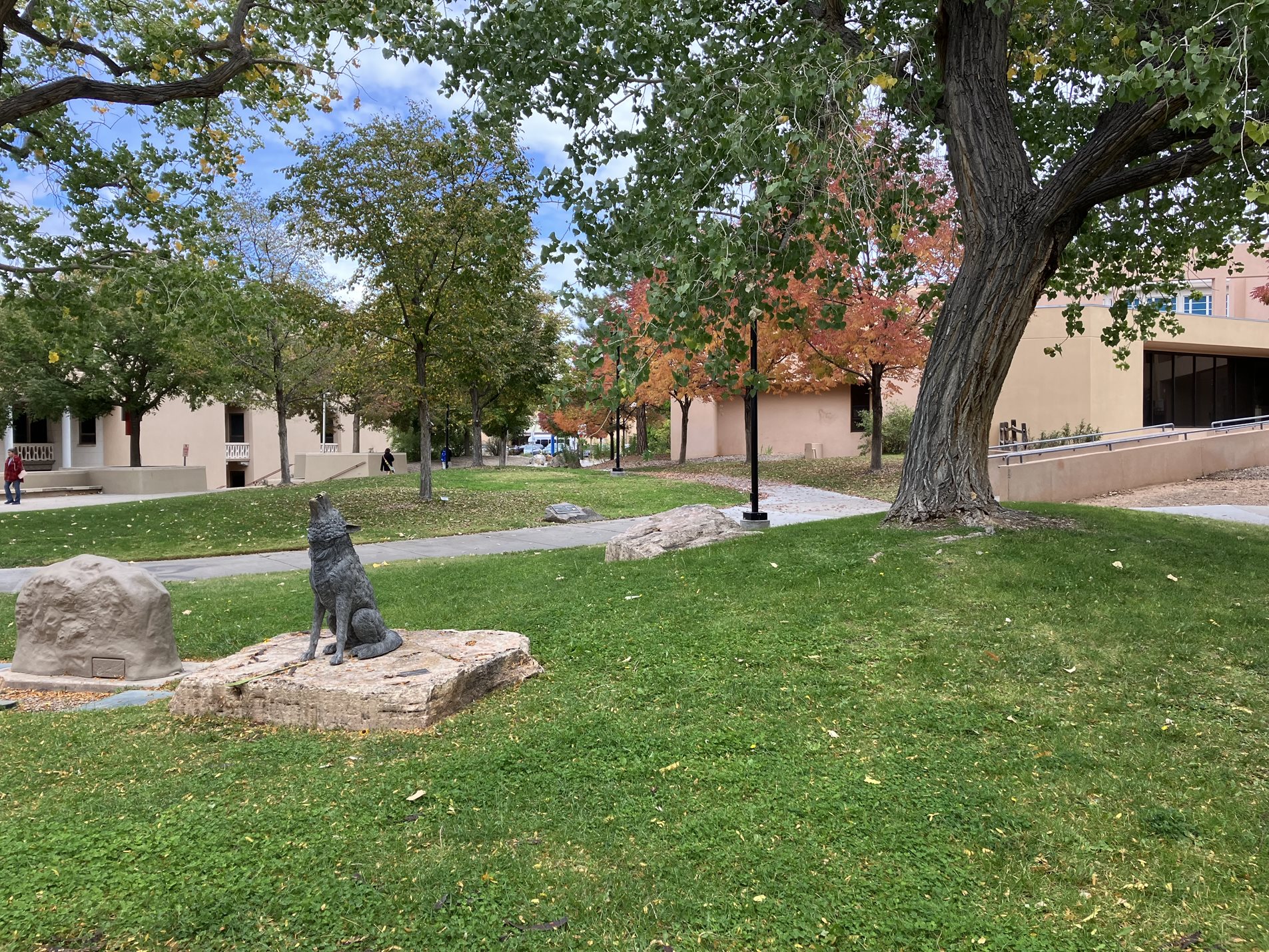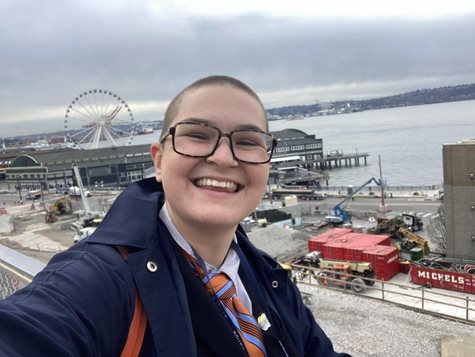October 2023

It All Comes Back to Relationships
By Delaney Couri
I spent the week before my comprehensive exams at a conference unrelated to my scholarship. Probably not the best idea. A twelve hour drive out and back to Albuquerque, New Mexico, split over three days, and three days chock full of conference sessions. What were they about? Mentorship.
Now, my typical research is housed in the Department of Communication and Journalism, but for the past three years I have also been invested in mentorship training in association with the Center for Teaching Excellence and the Graduate and Professional School. My work there is mainly practitioner based which means I deliver trainings on mentorship to individuals on campus, but adjacent to that practice is mentorship research. Research surrounding the efficacy of our programming, the ways that we are innovating within and across campus, and the struggles and successes we have had therein. Quantitative and qualitative studies which have been in the works for as long as I can remember.
This is different than my work as a Communication graduate. In my day to day, I am reading and writing texts that are explicitly critical and related to different ways that individuals communicate. A rhetorical scholar, I don’t do traditional quantitative or qualitative research. Instead, I read. And read. And read. About religion and religious oppression. About the LGBTQ+ community and homophobia. About intersectionality and diversity and the ways these values are shared out rhetorically in institutional messaging and individual interaction.
Generally, my research interests can be summed up in this way: How do people define themselves, how do others define them, and why does either definition matter? It is, at its core, identity work that occurs within and between individuals and groups.
While I was collaborating on slides for the conference I attended around mentorship, I was thinking about my work with mentorship as falling in a bucket completely unconnected to my other research. And then I attended the conference— and my view on my work changed.
As I set in session after session, I was amazed by the interdisciplinary nature of mentorship research. There were sessions over mentoring individuals from diverse backgrounds, sessions on loneliness and disconnection, and sessions on ways to better understand yourself as a way to understand others. The word “relationship” was dropped in every other sentence. And the more I listened, the more clear it became that my work in my department and my work in the mentorship space were not as different as I had thought. All of it, every single piece, comes back to our relationships.
Questions of identity are always already questions of relationships. Our own identities are just our relationships to ourselves, our bodies, our unique qualities. On the individual level, my identity as a non-binary person is a reflection of my relationship to my body and the way I think about it and present it to others. On the interpersonal and group level, my identity as a member of the LGBTQ+ community signifies my relationship to myself, my potential partner, and those who are situated and treated in a way that is similar to myself in places across the state and broader nation.
My investment in mentorship is a personal investment in relationships. My identity as a mentor shapes the way I interact with my mentees and my identity as a mentee positions me in my relationships with my mentors. Being a member of the intellectual community of mentorship practitioners and scholars is not just something that I do when I have time or when I am ignoring my work in my own department, it is a vital part of that work, both personally and professionally.
At the end of the day, I probably won’t write much explicitly about mentorship in my comprehensive exam responses. But I will write about relationships, about communicating across differences, and about the ways my scholarship can come off of the page and into the classroom. I’ll cite different scholars and write in a different way. But I’ll still be talking about and to the people in the world who care about other people in the world, people they are alike and people they are not. At the end of the day, my work will always come back to identity, connection, and relationship.
Maybe going to a conference a week before my comprehensive exams wasn’t such a bad idea after all.
